Guidance for Fostering Strong Bonds
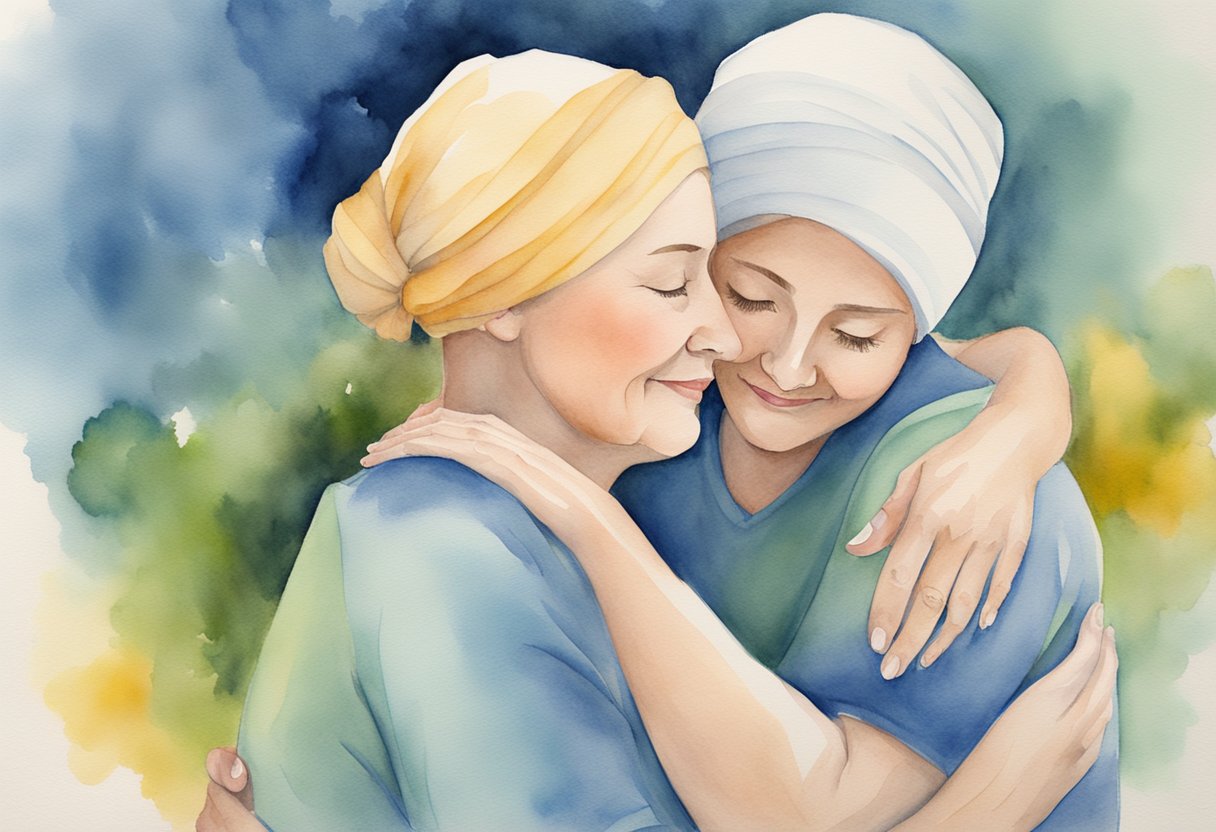
As cancer survivors navigate the complex emotional landscape following their journey through illness, building resilient relationships becomes a cornerstone of their recovery. Resilience in this context is the capacity to rebound from the challenges that a cancer diagnosis inevitably brings, and it often underscores the survival narrative.
For men who have faced cancer, severe types like lymphoma, fostering connections with care providers, peers, and loved ones offers a solid foundation for their post-cancer life. These relationships provide practical support and much-needed emotional sustenance, critical for promoting long-term wellbeing.
Surviving cancer can lead to a profound transformation of one’s outlook on life and relationships. Men who have endured cancer trials may develop a heightened appreciation for supportive bonds and an eagerness to engage genuinely and openly with those around them.
As they draw on their personal experiences, they become beacons of empathy and understanding within their communities, offering insights and encouragement to others on similar paths. The resilience developed through overcoming cancer serves the individual and strengthens the community by exemplifying the power of unity and collective encouragement in the face of adversity.
Key Takeaways
- Resilient relationships are foundational for the wellbeing of cancer survivors.
- Men who overcome cancer may become exemplary figures of support and empathy.
- Supportive bonds are crucial in shaping a positive post-cancer lifestyle.
Understanding Cancer and Its Impact
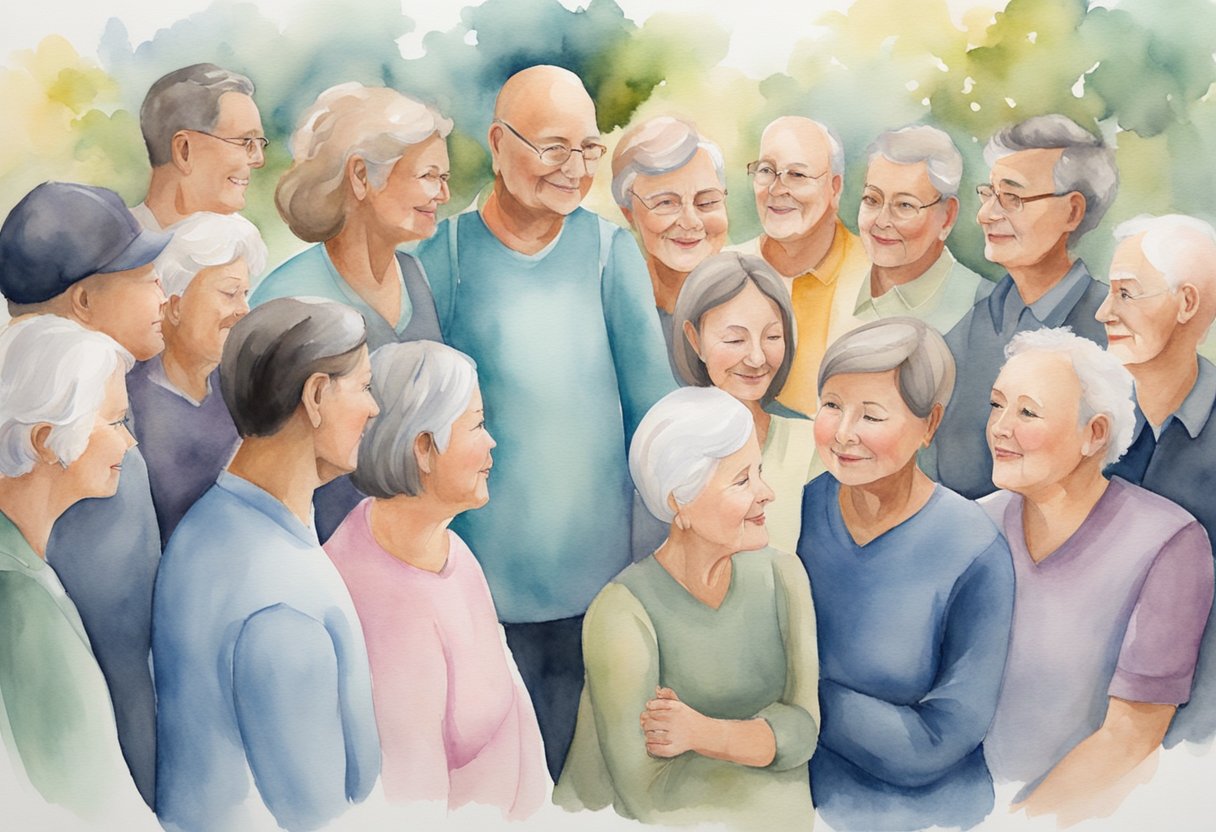
Navigating the terrain of cancer involves more than medical treatment; it profoundly affects one’s psychological wellbeing and physical health. Once a diagnosis is laid, the path ahead requires resilience and an encompassing support system.
Diagnosis and Treatment
Cancer diagnosis marks the beginning of an arduous journey. Individuals face a barrage of decisions regarding treatment for cancer, a path fraught with uncertainty and complexity. They often undergo surgery, chemotherapy, radiation, or a combination of these treatments, each with potential side effects and recuperation challenges.
Psychological and Emotional Effects
The wave of emotional distress following a diagnosis cannot be overstated; it encompasses fear, shock, and a sense of isolation. Acknowledging these feelings becomes doubly challenging for men, who might grapple with traditional expectations to exhibit strength. Support groups and therapy sessions can serve as a cathartic outlet for expression and shared understanding.
Physical Health Considerations
Physical health during and after treatment takes a central place. Treatment side effects can range from fatigue to more severe complications, affecting daily activities and quality of life. Physical health includes tailored exercise routines, a nutrient-rich diet, and sufficient rest. For survivors, especially those with lymphoma, this could translate into activities like light weightlifting or swimming, fostering a gentle return to strength and vitality.
Supportive relationships stand as pillars of strength through each phase, from encountering cancer to emerging as a survivor. They lend ears to concerns, hands in times of need, and hearts full of unabated support. For men who have bested lymphoma, fostering these bonds takes precedence, offering a testament to the power of companionship and the resilience of the human spirit.
Pathways to Resilience
The journey through cancer survivorship demands robust strategies for coping and an enduring sense of optimism. These elements pave the road to a resilient life post-cancer.
Coping with Cancer
Individuals grappling with cancer diagnosis often seek effective mechanisms to manage emotional and physical strain. For many, joining support groups provides a sense of community, wherein shared experiences foster strength and understanding. Techniques such as mindfulness and planned hobbies can significantly reduce stress and improve daily mood.
Survivorship and Recovery
Post-treatment, the objective shifts to rebuilding lives, and for that, resilience is crucial. Participation in sports, for instance, bolsters physical wellbeing and instills a team spirit that contributes to emotional healing. Routine follow-ups with healthcare providers ensure a track to recovery, while peer mentorship programs offer guidance through lived experiences.
Optimism and Hope
Sustaining a hopeful outlook significantly colors the survivor’s journey. Stories of resilience demonstrate that life after cancer can bear fruitful and rewarding experiences. Literature on cancer patients indicates that factors like gratitude and setting future-oriented goals are compasses that point toward hope and positive adjustment.
Support Systems and Relationships
Navigating the aftermath of cancer treatment demands an intricate web of support, as relationships significantly affect recovery and wellbeing. Adequate social and emotional backing offers a foundation for resilience, vital for those who have faced the trials of cancer.
The Role of Social Support
Social support serves as a buffer against the psychological strains that accompany a cancer diagnosis and recovery. Studies indicate that a sturdy network of friends and colleagues can facilitate better health outcomes and enhance the quality of life for cancer survivors. Such support comes in many forms: listening ears, helping hands, and shared experiences. Men recovering from lymphoma, for instance, may find solace in connections with others who understand their unique challenges without judgment. These relationships often extend beyond conventional emotional support, offering practical assistance and information that can be critical during recovery.
Family, Friends, and Caregivers
Family, friends, and caregivers form the cornerstone of a survivor’s network. Building resilient relationships becomes a cornerstone of recovery as cancer survivors navigate the complex emotional landscape following their journey through illness.
Caregivers embody resilience, often adapting their lives to the complex needs of the survivor with relentless compassion. Friends offer layers of emotional support, from camaraderie to distraction from the disease.
The interplay between these relationships can cultivate a sanctuary of stability and profound understanding. This support structure is particularly crucial for men who may grapple with expressing their emotional needs in the face of societal expectations that often downplay male vulnerability.
Addressing Mental Health
Navigating the aftermath of cancer involves not just physical recovery but also caring for mental health. Here, we explore men’s challenges and growth opportunities on this formidable path.
Stress and Anxiety
Cancer survivors often grapple with stress and anxiety as they adjust to life after treatment. Identifying stressors, such as financial pressures or fears of recurrence, is the initial step toward management. They might find solace and strength in bonds formed with others who’ve undergone lymphoma. Engaging in team sports can provide a much-needed diversion and a sense of normalcy, fostering resilience in an atmosphere of camaraderie.
Post-traumatic Growth and Adaptation
Surviving cancer isn’t solely about enduring hardship; many experience post-traumatic growth—a flourishing of personal development post-crisis. They may discover a newfound appreciation for life and deeper connections with loved ones.
Adaptation can also mean mentorship; offering guidance to others can reinforce one’s recovery narrative and diminish feelings of isolation common among male survivors. Involvement in community sports events raises spirits and unites survivors and supporters in a common goal.
Developing Self-Efficacy
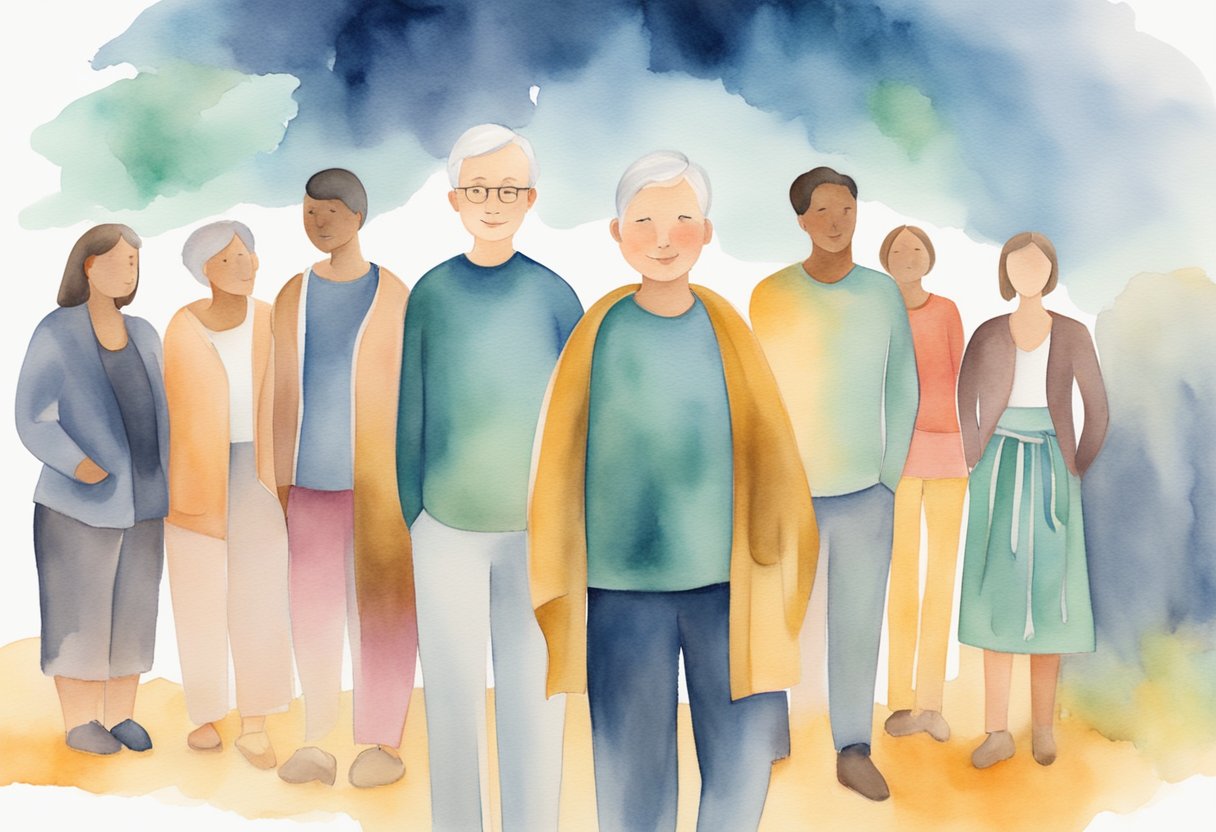
Developing self-efficacy is crucial for men recovering from cancer, as it empowers them to take control of their wellbeing and navigate the complexities of survivorship with assurance. Through strategies that bolster confidence and effectively manage anxieties, survivors can foster resilience and maintain their path to recovery.
Building Confidence
For a survivor, confidence grows with each small victory. Setting manageable goals allows men to experience consistent success. For instance, one may start by taking short, daily walks, gradually extending the distance as stamina improves. Celebrating these milestones reinforces a belief in one’s abilities. Group sports provide a supportive space where survivors can rediscover physical strengths and enjoy camaraderie, boosting their self-esteem.
Managing Fears and Worries
Acknowledging fears and worries is the first step toward managing them. Engaging in mindfulness practices aids individuals in recognizing their apprehensions without becoming overwhelmed. One helpful approach is maintaining a routine incorporating structured exercises, such as swimming or cycling.
These activities not only contribute to physical recovery but also create a mental respite from cancer-related concerns. Group therapy sessions specifically for male survivors offer a haven for sharing experiences and strategies, making the management of fears a collective success.
Navigating Life After Cancer
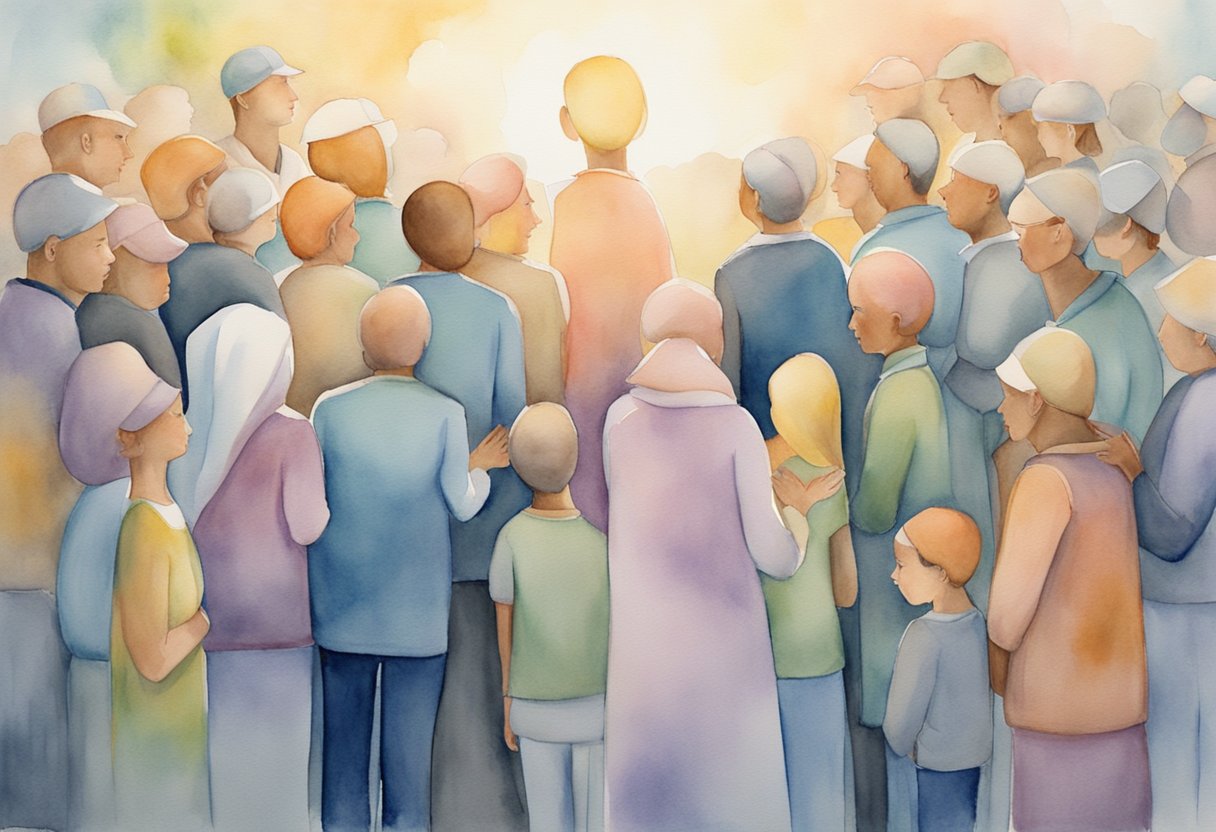
Life after cancer involves a significant shift back to what is considered normality while managing concerns about the future. Relationships become crucial in this phase, offering a steady foundation for readjustment and peace of mind.
Adjustment to Normalcy
Post-treatment, survivors often encounter a landscape of life vastly different from before. Adjustment to everyday activities might require time as they relearn their capabilities and limits. Many survivors find solace in sharing their experiences with others, especially with fellow men who have dealt with similar health battles, thus fostering a camaraderie centered on mutual understanding and resilience. In these connections, a new sense of normalcy can be found, integrating their survivorship into their identity.
Coping with Uncertainty and Recurrence
Coping with the specter of uncertainty and potential recurrence can overshadow the relief of remission. For a survivor who has overcome lymphoma not once but twice, the fear of recurrence lingers. The challenge lies in navigating this fear while nurturing a lifestyle that purposefully embraces each day.
Regular check-ins and screenings are a part of this life, serving as a proactive measure in staying ahead. Support groups specifically tailored for men offer a space to voice these concerns and learn practical strategies for managing this aspect of survivorship, reinforcing a sense of control and empowerment.
Research and Resources
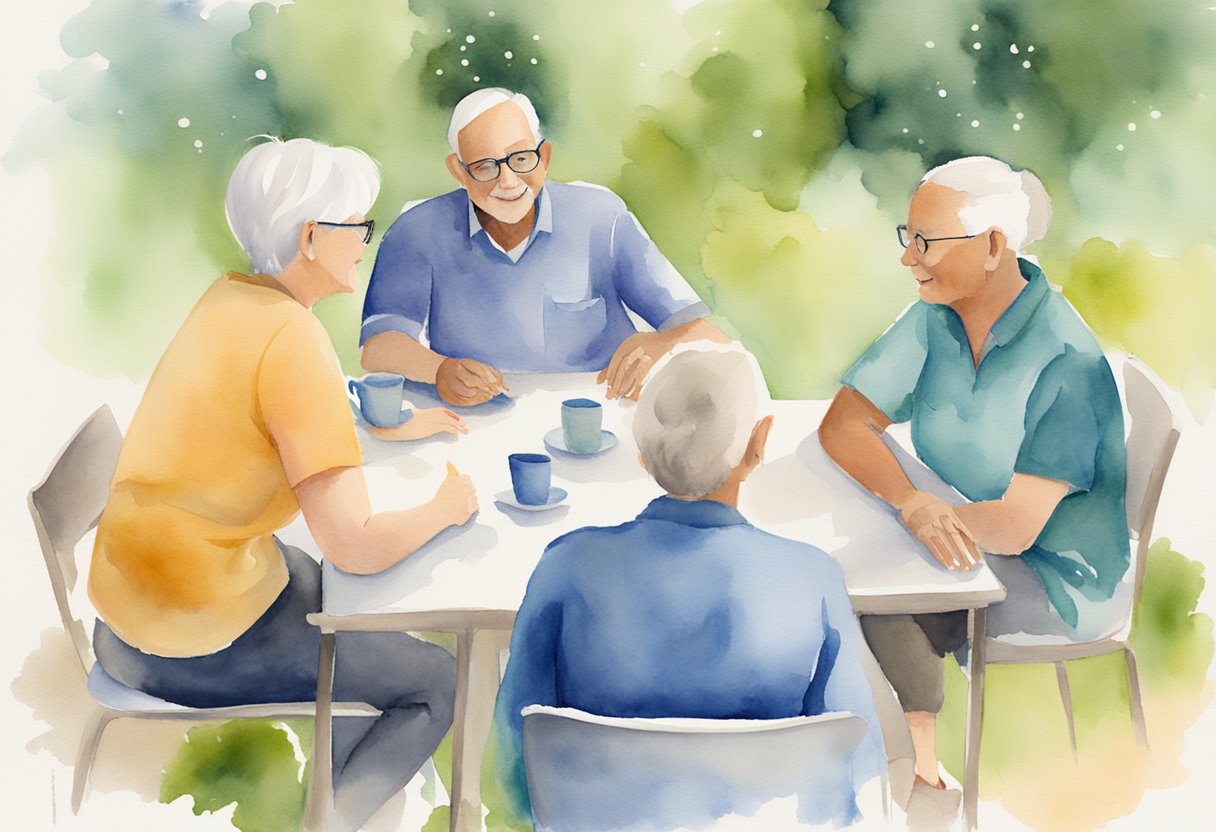
This section provides an in-depth look at the latest findings on cancer survivorship and the range of support networks available to survivors, focusing on nurturing resilient relationships.
Current Research on Cancer Survivorship
Researchers continuously explore how cancer survivors can foster resilience after treatment. A notable study identified resilience as crucial for those who have faced cancer, underscoring the need for strategies that build this quality in survivors. Similarly, the National Cancer Institute provides comprehensive data on survivorship, pinpointing resilience as a factor for improved quality of life post-treatment.
Available Support Resources
The American Cancer Society offers a wealth of supportive care services tailored specifically for men who have conquered cancer, including those who have battled lymphoma. From personal wellness plans to peer forums, the resources aim to bolster survivors’ networks and enhance their daily lives. Support groups and counseling services often serve as a cornerstone for recovery, providing spaces for shared stories and mutual strength.
Final Thoughts…
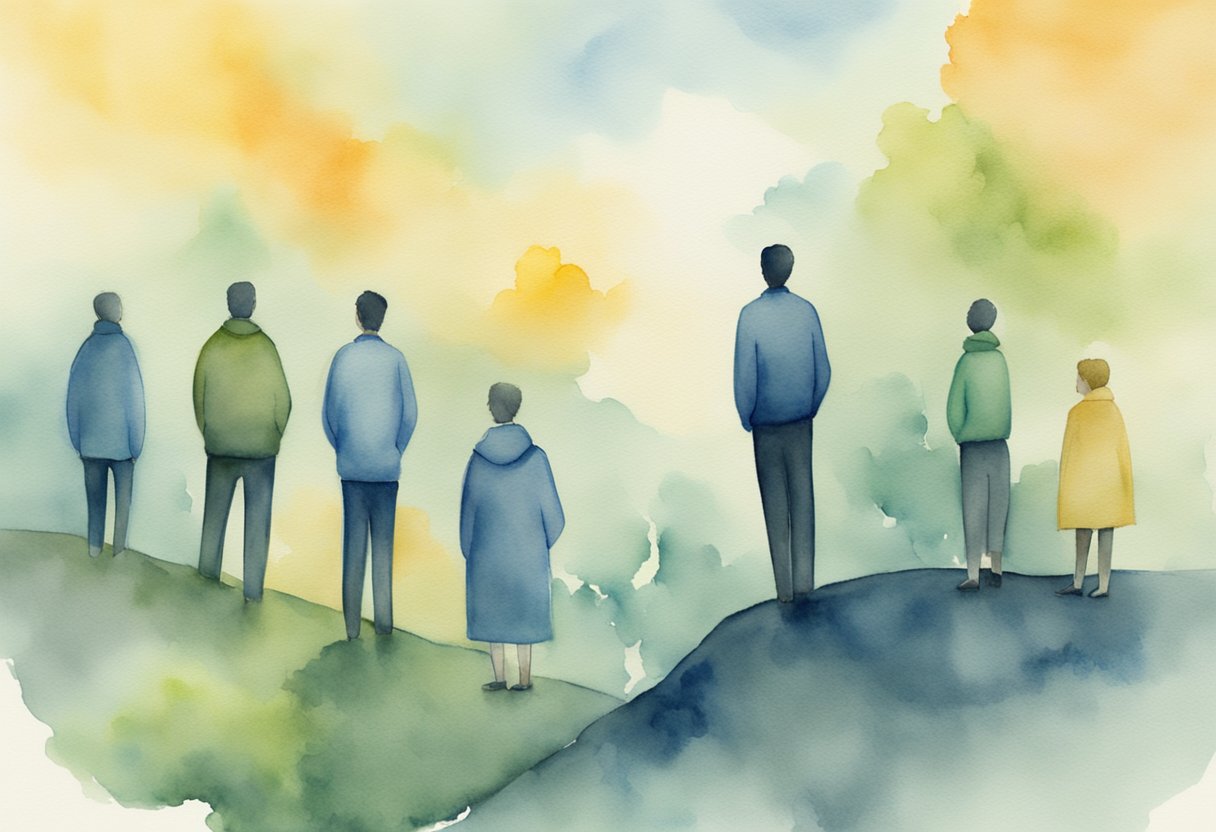
Surviving lymphoma not once but twice comes with profound insights, particularly about the strength found in relationships. Relationships act as the bedrock for recovery and continuous wellbeing. Partners, family, and friends become vital players in survivorship, offering encouragement and practical support when challenges present themselves.
Communication in these relationships needs to be open and sincere. Initiating conversations on needs and concerns can foster mutual understanding and shared resilience. Often perceived as reluctant to discuss their feelings, men can find solace in expressing their emotions, which helps fortify these supportive bonds.
Interactive activities like team sports can also catalyze social interactions, leading to a network of companionship and communal strength. Physical activity and emotional support contribute to holistic healing and camaraderie that extends beyond the playing field.
Staying informed and sharing credible information on survivorship with peers aids in demystifying the journey ahead, creating an empowering environment. Being a resource for fellow survivors, especially by relating personal triumphs over lymphoma, can inspire confidence and a positive outlook.
Survivors can build a resilient community by extending empathy to others and embracing various forms of support. These connections sustain long-term wellness and contribute to a narrative of hope and perseverance for every man fighting cancer. -T
Frequently Asked Questions
After overcoming lymphoma, individuals often seek to rebuild their lives with resilience. This journey inspires questions central to survivors’ experiences and growth.
What are the primary coping mechanisms utilized by cancer survivors to foster resilience?
Survivors often embrace a combination of emotional and practical strategies. Peer support groups and robust communication with healthcare providers are crucial in fostering resilience, as evidenced in the literature on cancer patients’ resilience.
How does post-traumatic growth manifest in individuals who have survived cancer?
Post-traumatic growth for cancer survivors can involve a renewed appreciation for life, a shift in priorities, and strengthening personal relationships. Survivors might develop a strong sense of purpose, as detailed in studies on survivorship and resilience.
Can you describe the lifestyle adaptations recommended for individuals after cancer survival?
Survivors are typically encouraged to maintain an active lifestyle with regular exercise, engage in hobbies that encourage emotional expression, and follow nutritional guidelines. Such adaptations support both physical wellbeing and emotional health.
How does surviving cancer potentially alter a person’s personality and outlook?
Survivors may experience a heightened sense of empathy and develop a more positive outlook. Some individuals reflect a greater understanding of patience and an increased capacity for compassion toward others undergoing similar challenges.
What methodologies are used to measure resilience in patients who have battled cancer?
Researchers utilize various tools, such as resilience scales and psychological assessments, to gauge a survivor’s resilience levels. These tools can assist in identifying areas where additional support is needed to enhance quality of life.
What is the recurrence rate of cancer in individuals previously in remission?
Recurrence rates vary widely among cancer types and individual cases. Continuous monitoring and follow-up are essential to manage and understand recurrence risks, which are quantified through medical studies and statistical analysis.
